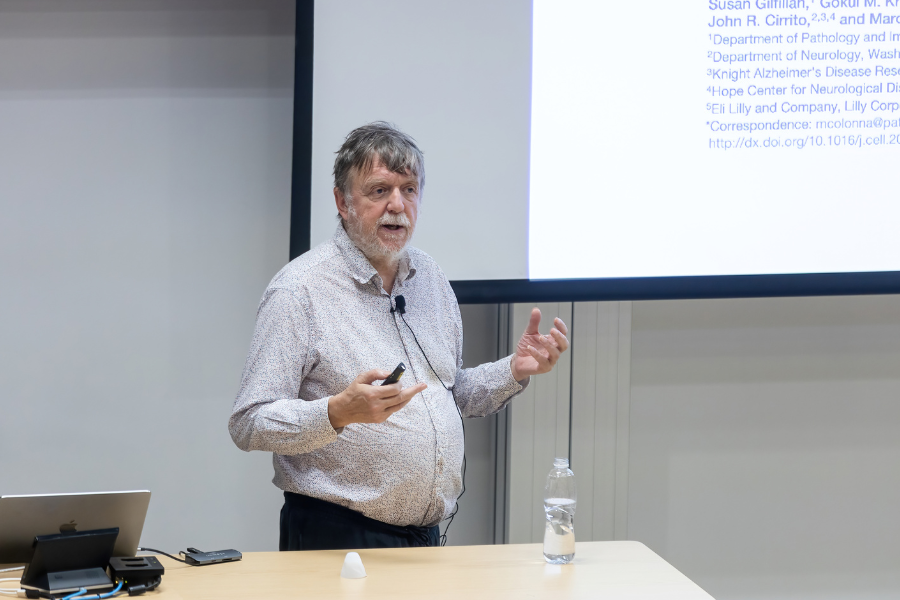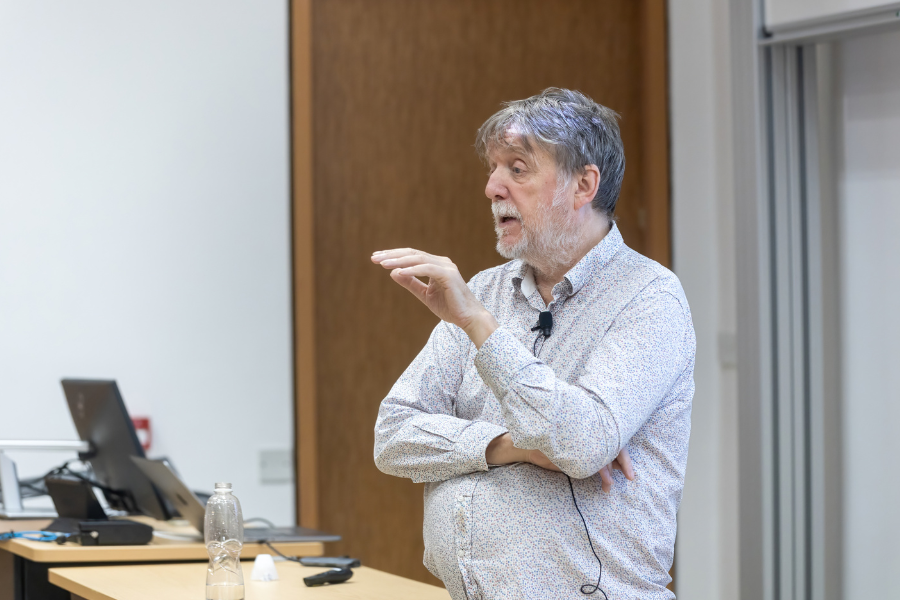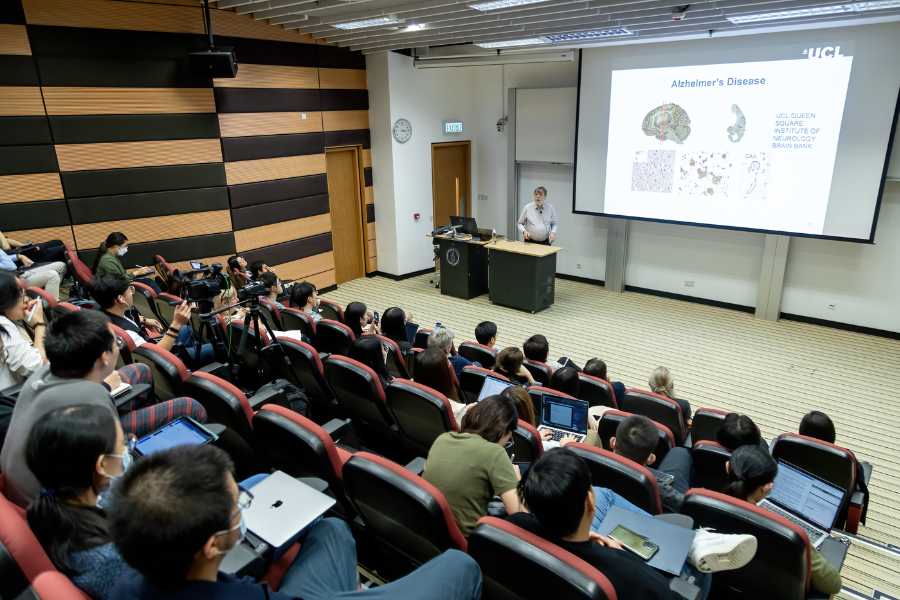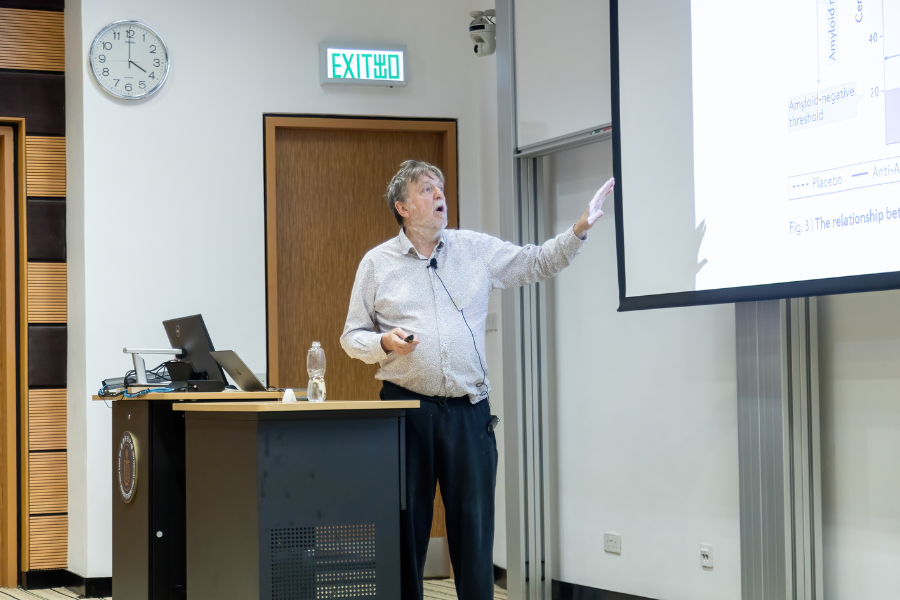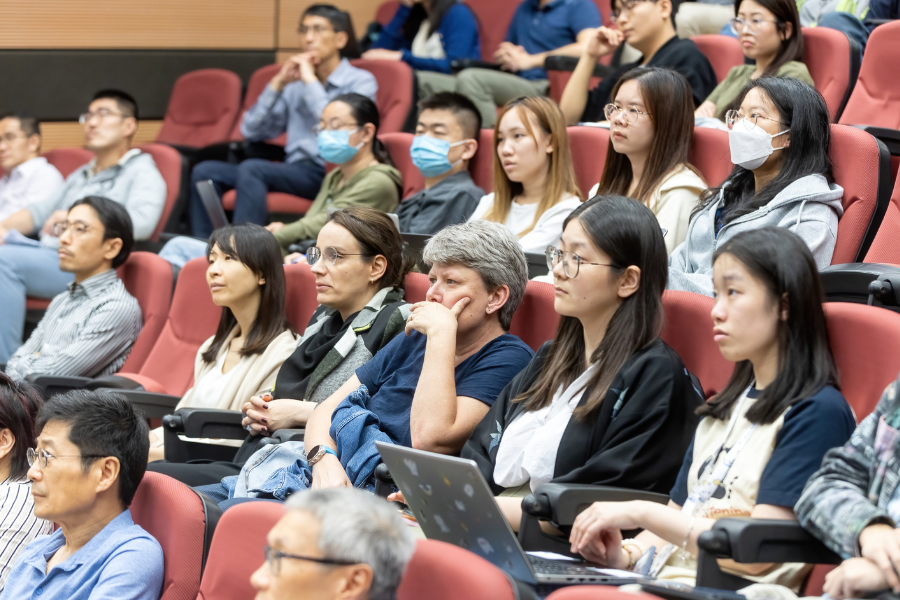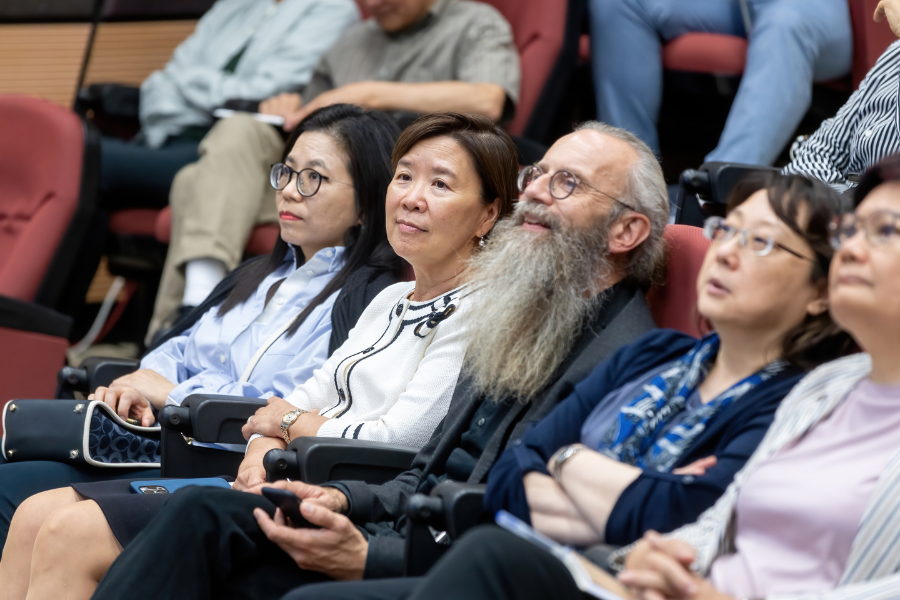The Genetics of the Major Neurodegenerative Diseases: From Mechanisms to Treatments
Abstract
In the talk the speaker will have two major aims: first, he will discuss the commonality in their pathogeneses and second, he will discuss the recent successful trials of anti-amyloid drugs and why they have been successful and what their partial success means for both future research and for clinical care systems.
One of the causes of early onset Alzheimer’s disease, early onset Parkinson’s disease and early onset tangle disease are gene duplications of the deposited protein gene (APP, SNCA and MAPT). This shows that each of these proteins are close to their deposition thresholds. As the speaker and his research group look at the genome wide associations for these diseases, what they find is that for Alzheimer’s disease, reduced function microglial and lipid genes contribute to risk; for Parkinson’s disease, reduced function of lysosomes contributes to risk and in the tangle diseases. The speaker will argue that these risk genes in each case reflect weaknesses in protein clearance: amyloid through microglia, synuclein through lysosomes and tau through the ubiquitin proteasome. Thus, to state things simplistically: early onset diseases can be caused by over production of proteins and late onset diseases can be predisposed to by weaknesses in protein clearance.
The recent success of lecanemab, dononemab and (arguably) aducanemab trials is great news and the speaker will discuss why these drugs have worked where previous have not and also the challenges of putting these drugs into clinical practice.
About the speaker
Prof. John Hardy received his BS in Biochemistry from the University of Leeds in 1976 and his PhD in Neurochemistry from the Imperial College London in 1981. He spent his early career in the University of Newcastle upon Tyne, the University of Umea and St Mary's Hospital (which later merged with the Imperial College London). In 1992, he moved to the US to take up the position of Eric Pfeiffer Endowed Chair in Alzheimer's Disease Research at the University of South Florida. He then joined the Mayo Clinic Jacksonville in 1996 as a Consultant and Professor of Pharmacology and chaired the Department of Neuroscience during 1999-2001. In 2001, he moved to the National Institute on Aging of the US National Institutes of Health as the Chief of Laboratory of Neurogenetics. He returned to the UK in 2007 as a Professor of Neuroscience at the University College London (UCL). He is currently the Head of the Department of Molecular Neuroscience at UCL and the Chair of Molecular Biology of Neurological Disease at the UCL Institute of Neurology.
Prof. Hardy’s research interests are in the genetic analysis of neurodegenerative disease. He contributed to a critical breakthrough in understanding what goes wrong in the brains of people suffering from Alzheimer’s disease, the most common form of dementia. He has since led a broader effort to understand the genetic factors underlying several forms of degenerative brain disease, including Parkinson’s disease and motor neuron disease. He discovered that a mutation in the gene for amyloid precursor protein (APP) caused deposits of a substance called amyloid to form in brain tissue, associated with early-onset Alzheimer’s. Deposits of amyloid, which kills brain cells, later proved to be a primary cause of the disease.
Prof. Hardy was elected a Member of the UK Academy of Medical Sciences in 2008, a Fellow of the UK Royal Society in 2009, of the Institute of Biology (now known as the UK Royal Society of Biology) in 2011 and of the European Molecular Biology Organization in 2015. He has received numerous awards including the Dan David Prize (2014), the Thudichum Medal (2015), the Hartwig Piepenbrock-DZNE Prize (2015) and the Helis Prize (2016). In recognition of his pioneering research in neurodegeneration, he was awarded the prestigious Breakthrough Prize in Life Sciences in 2016 and the Brain Prize in 2018. Prof. Hardy has been awarded Honorary Doctorate by HKUST in 2020 and Honorary Doctorate by the University of Helsinki in 2022 in recognition of his distinguished research achievement.
Co-organizer
Hong Kong Center for Neurodegenerative Diseases (HKCeND)
For Attendees' Attention
Seating is on a first come, first served basis.

